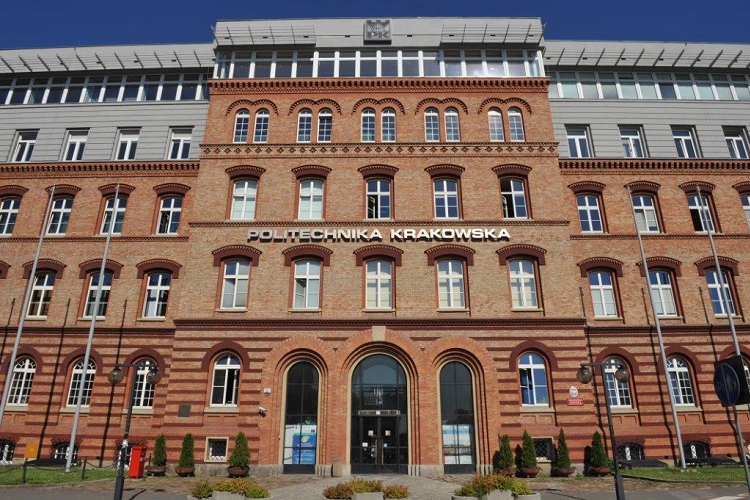- A system of education in Germany
- A preschool education
- A primary school
- A secondary school
- Higher educational institutions
- Differences in education
- Advantages of education
- Conditions of entry
- Duration of education
- An educational year
- Exams
- Scholarships
- Diplomas
- Scientific degrees
- Internship and practice
- A cost of education
- Additional documents and information about education – useful sites
- A residence
- A food
- Transport

Germany is a prestigious European country where thousands of Ukrainian graduates dream to study. It is the German universities that take leading positions in world rankings. Currently, about 5000 students from Ukraine study in this country, which is only 3.5% of the total number of foreign students. It should be noted that education for Ukrainians, as well as for all foreigners in Germany, is free of charge. But education is conducted in German and for admission, it is necessary to confirm the high level of its knowledge, as well as the certificate of passing special courses Studienkolleg.
The duration of the preparatory course is 1 year. Unlike higher education, preparatory courses are conducted on a paid basis. Applicants during the preparatory courses have the opportunity to improve their knowledge of the German language, as well as from three or four subjects.
A system of education in Germany
In Germany, there is a four-level system of education. At the first stage, German children receive elementary pre-school education. Then comes the period of two-level secondary education. At the fourth stage, young people have the opportunity to get a high-quality higher education. In Germany, pupils have to finish a 10-year school that is both general and free.
The regulation of the education system in Germany is carried out at the federal level (only some issues are regulated by the state). That is why there are some differences in the education system in all 16 lands.
A preschool education
Preschool education in Germany is based on the traditions of social education. Since 1957, a law on free attending has been introduced in the country, which still exists. Only 20% of kindergartens are financed by the state, other 80% belong to churches, trade unions, the Red Cross and other charitable societies. Parents of children attending non-state preschool institutions in Germany pay only half of the required amount; the rest of the expenses are covered by the owner of the organization.
In Germany, there are kindergartens of different types, in which the main emphasis is placed on upbringing. Kindergartens here are closed and open. In open gardens, Montessori’s or Steiner’s techniques are the most common.
A primary school
In school in Germany, children go at the age of 6. Education at this stage lasts 4 years. But in some federal districts, it is 5-6 years. In the elementary school, it is not accepted to grade, so the encouragement to study is in the form of marks “emoji” or “sun”, or in words. Such an approach to evaluation is often criticized because children enterthe secondary school after the elementary, where there is no indulgence in the assessment.
A secondary school
In Germany there are three types of high school:
- Hauptschule;
- Realschule;
- Gymnasium.
Hauptschule – a school that prepares children for the development of craft professions. The level of teaching at school is low, the practical approach and the small number of complex subjects prevails. In fact, this is a school for students with the lowest level of knowledge, which are mostly visited by migrant children whose parents, because of their own lack of education, deprive their children of the right to high-quality European education. With such a certificate it’s hard to find a job or get a higher education, so graduates are waiting for unemployment. This type of school is considered to be the most imperfect, so it is not allowed in some areas of the federal republic of Germany.
Realschule – schools with a better reputation, in which more subjects are studied and good preparation is provided. After graduation, each graduate receives a certificate with which is more likely to get a job. This certificate also allows you to go to the final classes of the gymnasium and get a certificate with which you can enter higher education institutions.
Gymnasium – these are prestigious schools in Germany that provide high-quality secondary education and a certificate with which you can enter higher education. There are two levels of gymnasium:
- Secondary Gymnasium – from 5/7 classes to 10;
- High Gymnasium – from grade 11 to 12 or 13. Is equated to the American High School.
There are critics who call gymnasium elite and call for the creation of a single secondary school so that students have the opportunity to study together and receive the same certificate. In some regions, such schools already exist.
In middle school in Germany, there is Abitur – a maturity certificate, for which you need to make difficult exams. In general, studying in high school is rather difficult and it is sometimes equated to the first courses of the university. This is due to the fact that there are no exams for entrance to the German universities, and a good assessment at Abitur increases the chances of joining a good and prestigious specialty. University selection is based on the results of Abitur.
Higher educational institutions
In Germany, there are about 340 higher education institutions. There are several types of universities depending on the status:
- Technical direction;
- Applied Sciences (Fаchhochschule);
- Art educational institutions;
- Conservatories;
- Film Institutes.
There are also educational institutions that have university status and prepare primary school teachers.
In Germany, there are both public and private educational institutions, business schools.
Differences in education
- The most important difference, which at first seems unusual for Ukrainian entrants, is a form of assessment of the quality of knowledge. In Germany, the lowest rating is considered the best. That is, “1” is the best result, and “6” is the worst. Also possible estimates in the form of 1,2; 3.4; 5.6 and so on.
- To enter Germany, you need to have a high level of proficiency in German. To confirm the language knowledge, you must complete the Goethe-Institute or TestDAF tests at level B1-B2.
- For foreign students, you need to undergo annual education at the preparatory course of the local college. But the entrance and education in college is not a guarantee of further study at the university.
- Studying at a university in Germany is free and is provided in German. Students should only pay an administrative fee of 250-300 euros. This payment has to be made for each semester. This money goes to the maintenance of buildings, payment of travel tickets, subscription fees in the library and other elements of the existence of universities.
Advantages of education
Study at the University of Germany is one of the most prestigious in Europe. Getting a university degree from this country is a journey to successful employment and a good career. In addition, there are a number of advantages that Ukrainian entrants are paying particular attention to:
- Labor legislation of the country is encouraging for students, so during the studying young people have the opportunity to work freely;
- Students who study at universities in Germany and are working at the same time can obtain a work visa;
- Universities employ their students as research staff;
- Germany has many scholarship programs and grants from government and different organizations. Talented students have the opportunity to receive a tuition fee that covers the cost of living and meals;
- There are wide opportunities for building a successful career;
- Availability of student tickets and travel around the country during the educational process.
Conditions of entry
All foreign students who plan to receive higher education in Germany have to pass a special language proficiency test – Deutsche Sprachprüfung für den Hochschulzugang or DSH. This is a specialized German test, which is conducted only in Germany and only for foreign students. It is necessary to make a test personally, visiting the country. There are special courses for preparation for testing, and the DSH exam is conducted 3-4 weeks before the beginning of the semester. The presence of this certificate confirming the level of knowledge of language C1 is compulsory when you are entering the German universities.
There are also other German language tests that are less common among foreigners. The list includes tests such as TestDaF, Goethe-Zertifikat C2, Deutsches Sprachdiplom (DSD II).
Foreign students also have the opportunity to take other preparatory courses for entry – Studienkolleg.
Requirements for entrants:
- Direct entry is possible after two years of study at higher education institutions in Ukraine. To do this, you have to provide notarized copies of a diploma or certificate of secondary education, a letter with a statement of assessments from the educational institution, a certificate of knowledge of the German language. If the chosen course is taught in English, you also need to provide a certificate of knowledge of this language.
- During the entry after graduate school, you have to provide copies of your education (certificate or diploma), German language proficiency certificate, and the successful completion of the German preparatory courses and good marks from examinations.
Duration of education
The bachelor’s degree usually lasts 3 years. To obtain a Master’s degree, you have to study at the University of Germany for 1,5-2 years.
An educational year
The academic year is divided into two semesters:
- Winter, lasts from October to March;
- Summer, lasts from April to September.
Accordingly, there are 2 periods of filing the documents for the entry into the winter and summer semesters. In order to start studying during the summer semester, documents have to be submitted before January 15th. For studying during the winter semester, documents are accepted until July 15.
Exams
In the universities of Germany, a credit-modular evaluation system operates in accordance with the requirements of the Bologna system. Each subject has modules. Such modules can be both independent subjects and consist of several interrelated disciplines. Assessment of modules takes place by taking exams in the form of written work, oral answer, abstract, independent work at home. Valuation is carried out by placing credit units to students.
Scholarships
There are many grants for studying and scholarship programs for foreign students in the country. Education in most universities in Germany is free, so funding is provided for residence, transport, and food.
Today, more than 15,000 foreign students who come to study in Germany are funded by a variety of organizations. Statistical data argues that grants receive 30% of those who have applied for additional funding.
The size of the scholarship depends on several factors, but can not exceed 700 Euro per month. Also, if sponsors are interested in financial assistance to individual students, they can pay membership fees, medical insurance, compensate for office costs, and so on.
The size of the student grant, which covers the student’s annual expenses, is on average 8,000 Euros. This is the amount set by the government and it covers all student expenses related to study and residence.
Scientific degrees
Previously, there were degrees in the universities of Germany for a master’s degree and a specialist diploma. But in 2010, in connection with joining the Bologna system of education, these forms of education were reformatted. Now in the universities of Germany, there is a two-stage system:
- Bachelor;
- Master.
Bachelor studies last 3-4 years. A student who has received such a diploma already has the right to engage in professional activities.
Master – the education lasts 1-2 years, the main task of students is to conduct scientific work and get a deeper specialization. A master’s degree is required for admission to a doctoral degree.
After obtaining a master’s degree, graduates have the opportunity to study in a doctoral degree. This education lasts 2-4 years, depending on the chosen specialization.
Diplomas
- The first diploma giving you the right to work is a Bachelor’s degree. To receive a diploma you need to get from 180 to 240 credits, depending on the chosen educational profile.
- After 1-2 years of study and 60-120 credits, students receive a master’s degree. A master’s degree is a precondition for admission to postgraduate education.
- The third degree, in accordance with the Bologna process, is postgraduate (Promotion), that is, the preparation and defense of a scientific dissertation. Education lasts from 2 to 4 years. Entrance to postgraduate study is possible after obtaining a Master’s degree or equivalent (Diplom – Specialist / ErstesStaatsexamen / MagisterArtium).
- The degree of Doctor (Doktor) can be obtained after writing and defending a dissertation.
Internship and practice
Internships in Germany can be provided by students from local universities and Ukrainian universities. The internship period is 2-3 months depending on the program. International organizations that host students for internships may be related or not related to the main profession.
One of the prerequisites for a successful internship is a good level of knowledge of the German language. There are also programs in English.
A cost of education
Most sites provide information that studies in Germany are free. But this is not exactly true. Since 2005, according to the new lawthe, education around the country has become free. But some federal lands have the right to receive tuition fees from students. Yes, in most cities you do not really have to pay for tuition. All that is required of students is the payment of student contributions once a semester, or once a year in the amount of 100-300 EUR. These funds are spent on a travel ticket, a subscription to the library, the maintenance of campuses.
Only universities in Lower Saxony and Bavaria have a tuition fee – up to 500 EUR per semester. Additionally, for each semester, the student has to pay a student fee of 250 EUR.
Studying at private universities in Germany costs an average of 450 EUR per month of studying. For studying in private universities, you will have to pay from 5000 to 32,000 EUR a year depending on the chosen university and the direction of study.
In English language courses, the cost of education is 1500-2000 EUR per semester.
A residence
In Germany, there is such a concept as a blocked account. Such an account should be opened by a foreign student when he is going to study, preparatory courses, language courses, applies for entry. Such an account is a confirmation of student solvency for student expenses, residence, food, insurance, etc.
To open such an account, you can contact the German bank with a letter written in German or English. Such a letter can be sent by e-mail and addressed to the department of cooperation with private and business persons.
To enter the account has to have at least 8000 EUR – the estimated annual student expenses. This amount includes not only the cost of living and studying. It is worth taking into account such services:
- Insurance – from 80 EUR per month;
- Rent a room or one-bedroom apartment – 200-300 EUR per month;
- The cost of food for one person – on average of 200 EUR per month;
- The cost of a visit to a doctor – 10 EUR;
- Visiting the cinema – 6.50 EUR in the presence of a student ticket and 8 EUR without a student ticket;
- Rent a bike – 10 EUR a day, buying a used bicycle – 70 EUR.
A food
The cost of products from the basic food basket in Germany is quite high. This is due to the high level of solvency of local residents. On average, one German spends on products every day 9 euros. We offer you to familiarize yourself with product prices:
- Milk 1 liter – 0,7 EUR;
- Rice 1 kilogram – 1,8 EUR;
- Potato 1 kilogram – 1 EUR;
- Chocolate 100 gram – 0,8 EUR;
- Water 0,5 liter – 0,8 EUR;
- Cheese 1 kilogram – 7,55 EUR;
- Apples 1 kilogram – 2,1 EUR;
- Eggs 10 pieces – 1,65 EUR;
- Chicken breast – 6,6 EUR;
- Beef 1 kilogram – 11,1 EUR.
There is also a possibility to eat in the cafe. The cost of one portion which you can take is between 1,5 and 3,5 EUR.
Transport
The most convenient types of transport for students in Germany are trains, metro and buses. The ticket price depends on its term:
- 1 day – 6 EUR;
- 1 week – 25 EUR;
- 1 month – 73 EUR.
The cost of a trip in a city by taxi is an average of 18 EUR.
Read also – Scholarship 2018: Studying in a summer school DESY (Germany).


 kudapostupat
kudapostupat



















 498624
498624 



















